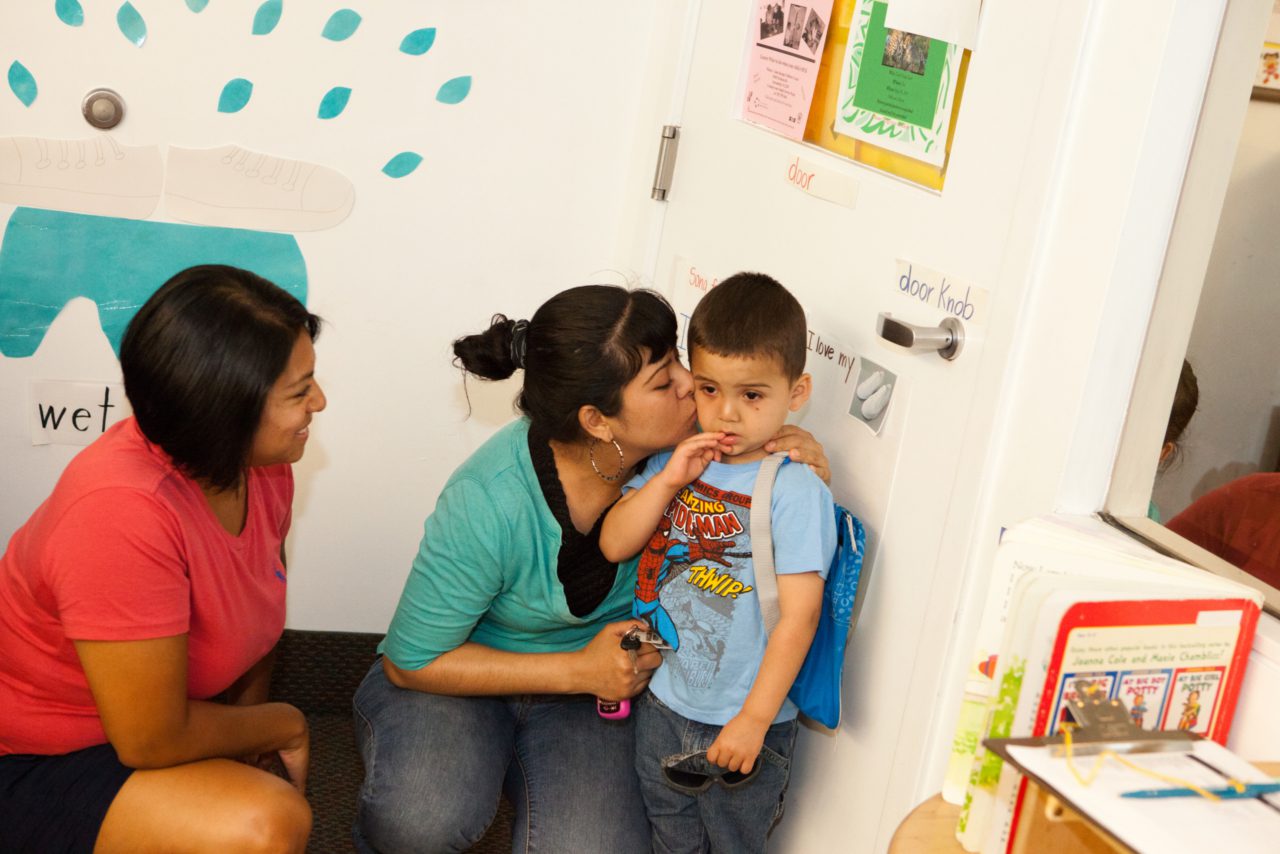Research shows home visiting can be an effective method of delivering family support and child development services. If we look across the robust research on various home visiting models, several strong themes about impacts emerge. Here are five positive outcomes that demonstrates the power of home visiting programs.

Kiwi Street Studios
Some of our nation’s costliest social problems—like child abuse and neglect, school failure, poverty, unemployment, and crime—are rooted in early childhood. Voluntary home visiting matches parents with trained professionals to provide information and support during pregnancy and throughout their child’s first years—a critical developmental period.
Quality, voluntary home visiting leads to fewer children in social welfare, mental health, and juvenile corrections systems, with considerable cost savings for states. Research shows home visiting can be an effective method of delivering family support and child development services.
Impacts of Home Visiting
If we look across the robust research on various home visiting models, several strong themes about impacts emerge. Home visiting models vary in their program structures, specific intended outcomes, content of services and targeted populations, so it is important to understand that impacts on specific indicators also will vary.
- High quality home visiting programs can increase children’s school readiness.
- High quality home visiting programs can enhance parents’ abilities to support their children’s overall development.
- High quality home visiting programs can improve child health and development.
- High-quality home visiting programs can improve family economic self-sufficiency.
- High-quality home visiting programs can produce a substantial return on investment.
The Cumulative Effects of Home Visiting Outcomes
These positive outcomes interact with each other to improve child and family outcomes. Better parenting practices and increased reading and other language-related activities at home help positively affect school readiness by creating bonds, promoting self-regulation and self-confidence, and engaging in the interactions that stimulate communication and learning. Better prenatal care improves child health, which enables children to more readily go about the job of learning about the world they live in. Social support and connections to services such as mental health, as well as increased economic security, reduce parental stress and therefore the likelihood of prolonged elevated stress reactions that can undermine the baby’s development of strong brain architecture.




